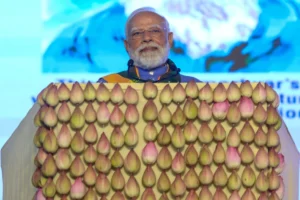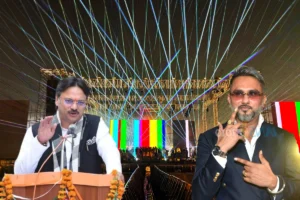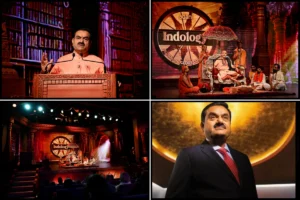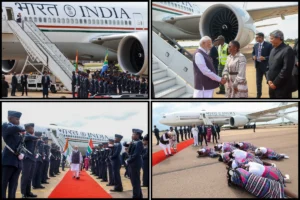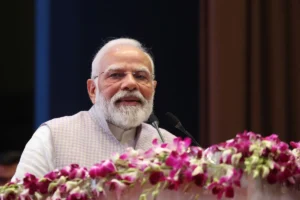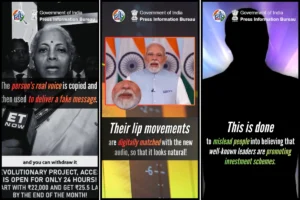
Following his victory in the presidential run-off election in Sao Paulo, Brazil, on October 30, 2022, Luiz Inacio Lula da Silva, the leftist leader of the Workers Party, greeted his supporters.
The victory of the leftist Workers Party leader over an incumbent President running for reelection is unprecedented in Brazil’s 34-year history of democracy.
Luiz Inacio Lula da Silva accomplished something unprecedented in Brazil’s 34-year-old democratic history by narrowly defeating an incumbent President who was running for re-election in the direct run-off of the presidential election (by receiving just over 50.9% of the vote).
President Jair Bolsonaro’s defeat should not be a surprise either. After all, he presided over a stumbling economy and exacerbated a severe public health crisis during the COVID-19 pandemic. He also received international disapprobation for rampant deforestation in the Amazon.
The well-liked former union leader Lula, who had two terms as President in the early 2000s and was credited with governing in a way that reduced poverty and promoted economic growth by utilizing a booming global commodities market, should have had an easy victory despite such a troubled legacy. After all, he had a more-than-80% approval rating.

But Lula also had to fight to restore his reputation after being imprisoned for nearly two years for corruption in the Car Wash scandal. He was eventually let go after it was discovered that the prosecution and the judiciary colluded to rig the trial.
Lula had to also reckon with the continuing support for Mr. Bolsonaro among conservatives and religiously minded people in Brazil— a group that transcended class and regional divides, besides the wrath of the powerful agribusiness lobby which gained the most from Mr. Bolsonaro’s rule and his policies on deforestation and whittling down of Indigenous peoples’ rights.
The strength of these forces is evident in how Lula’s lead in votes over Mr. Bolsonaro fell from more than five percentage points in the first round to less than two in the second round. In fact, Mr. Bolsonaro gained votes in all States in Brazil and in the north and south west States in particular, between the two rounds.
Additionally, Mr. Bolsonaro repeatedly attempted to sabotage the electoral process by erroneously contesting the validity of Brazil’s electronic voting system, which stoked mistrust among his most ardent supporters.
Even though some of his supporters, including a group of truckers, tried to block roads, including major arterial highways across the nation, he had still not conceded defeat as of early Monday.
Mr. Bolsonaro, a former military official, has gained significant support from business communities opposed to redistribution, evangelical Christians opposed to progressive ideologies and those who disapproved of the social liberal policies of the Workers’ Party led by Lula and his successors. His appeal stems from his unrelenting hostility to the Left and his strident support for the country’s period of military dictatorship.
Unlike Mr. Bolsonaro, who has reveled in political polarization and demonization of his opponents, through promoting a disinformation campaign which included false claims of his presidential opponent backing communism and persecution of churches, Lula has always sought negotiation as a strategy for incremental progress.
In his most recent biography, John D. French makes the case that Lula’s approach has always been to engage in dialogue with political opponents while maintaining the ability to “stand up and fight, when needed. Through a cunning politics of addition and transformation carried out by establishing points of convergence through diversity.”
Along with his strong pro-poor stance and decades of experience as a working-class leader, he is well-liked by progressives, a sizable portion of the lower middle class, and the poor.
As is customary for him, Lula’s first speech after claiming victory sought to promote harmony rather than discord, declaring that he would rule for all Brazilians, “not just for those who voted.”This was clearly a message to assuage concerns in a polarized electorate and to seek ways to work with a divided Congress in which Mr. Bolsonaro’s Liberal Party is the single largest party and other centrists have sizeable representation.
Outside of Mr. Bolsonaro, Bolsonarismo has performed reasonably well in recent elections in Brazil, with some pro-Bolsonaro candidates winning governorships in States.
With leftist Presidents taking office in other nearby nations, Latin America is experiencing a second pink tide at the same time as Lula’s victory. This time, the majority of his rivals have emphasised the need to advance progressive policies without solely relying on resource extraction and to promote change through democratic reform and persuasion rather than open conflict and institutional capture. Lula’s work will be difficult.
To read more such news, download Bharat Express news apps








